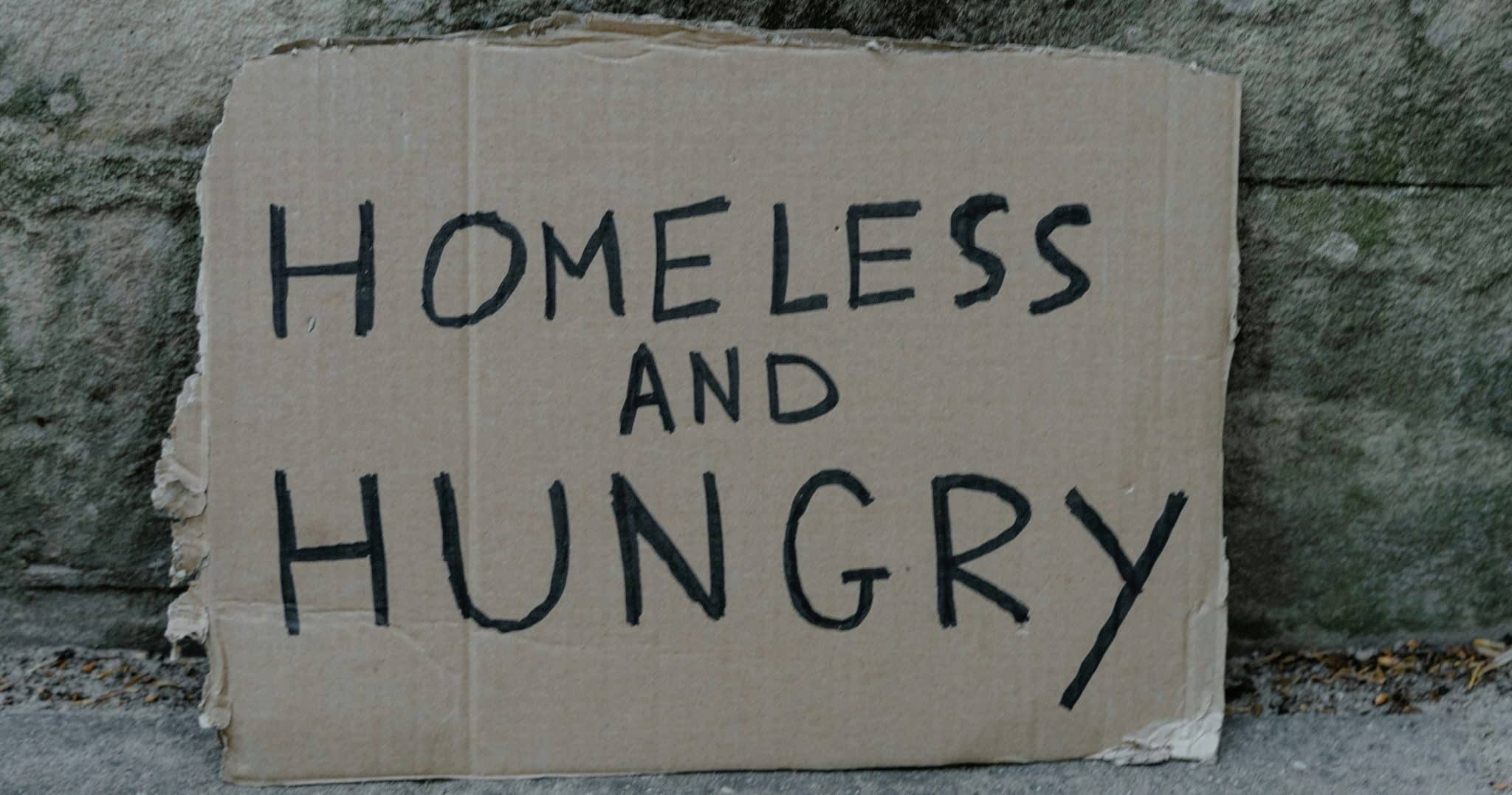You don’t have to be in a Barbie movie to be told “it is literally impossible to be a woman”. But, women, God sees you
This International Women's Day (March 8), Salt&Light acknowledges the efforts, challenges and faithfulness of women everywhere.
by Christine Leow // March 8, 2024, 2:42 pm

In one of the most iconic scenes in the Barbie movie, the challenges women face were highlighted in a memorable monologue. But ours is a God who has always been counter-cultural. The world may disregard women. But He deems them precious in His sight, as these three women in the Bible show. Image by freepik.
A whole day just for women? Why don’t men get one?
My smart retort to remarks like these used to be: “Because every other day is Men’s Day.”
“You have to never get old, never be rude, never show off, never be selfish, never show fear, never get out of line. It’s too hard!”
I repent of the sass and lack of grace. But there is more than a kernel of truth in this. That we have to have a day dedicated to celebrating women’s achievements and encouraging parity for women tells us that women aren’t regularly celebrated or enjoying equality.
Perhaps nothing in recent memory quite sums up the struggles women face, as the Barbie movie monologue by America Ferrera highlights.
In the movie, Ferrera plays the only female employee at Mattel, and in her impassioned speech where she talks about how it is “literally impossible to be a woman”, she ends with exasperation: “You have to never get old, never be rude, never show off, never be selfish, never fall down, never fail, never show fear, never get out of line.
“It’s too hard! It’s too contradictory and nobody gives you a medal or says ‘thank you’! And it turns out, in fact, that not only are you doing everything wrong, but also everything is your fault.”
3 women in the Bible who reveal God’s heart for all
Women have not had it easy in this world.
But as I contemplate my lot in life this International Women’s Day (March 8), I am grateful that my God is different. He has taken great pains to show again and again that He has a place and a plan for women.
Leah: Unloved but not overlooked (Genesis 29-30)
Few women in the Bible suffered neglect quite like Leah.
In the very first mention of her in Genesis 29:17, she was already compared to her sister, and unfavourably so. While Rachel was younger, Leah was older; while Rachel was “lovely in form and beautiful”, Leah had “weak eyes”.
Perhaps nothing evokes as much empathy for Leah as her having child after the child in the hope of earning her husband’s love.
Commentators may quibble over whether that meant Leah had poor eyesight or merely lacked that sparkle in her eye or if it was an idiom that had nothing to do with eyes at all (like “pulling your leg” has nothing to do with pulling or legs).
But from even a cursory reading of the verse, it is quite clear that Leah would not have won prizes in the looks department.
She was unlovely.
More than that, she was unwanted.
Her own father thought her so undesirable and unmarriageable that he had to resort to trickery to get her married off to a man who was not even local to the place. (Genesis 29:23) Clearly, no one in town wanted Leah.
She was unloved (Genesis 29:30) and she knew it deeply.
Nothing evokes as much empathy as the account of her having child after child in the hope of earning her husband’s love.
She named her firstborn Reuben because “surely my husband will love me now”. When that came to naught, she had another son, then another son. That one she named Levi because “at last my husband will become attached to me”.
But Jacob remained steadfastly in love with Rachel.
Finally, Leah was unsupported. We are not told what her relationship with her sister was like before. But by the time the two women were forced to share one man, things were not good. She who had it all – looks and love – became jealous of the one who had little. (Genesis 30:1) Thus began the baby race that took up almost the whole of Genesis 30.
Our relationships may leave us feeling invisible, but ours is a God who sees us.
But through it all, God looked out for Leah, making sure that she was not collateral damage in her father’s treachery.
“When the Lord saw that Leah was not loved, he enabled her to conceive.” (Genesis 29:31)
God saw Leah, empathised with her predicament and did something about it. And she knew “it is because the Lord has seen my misery.” (Genesis 29:32).
After God gave her four sons and she knew it was God at work each time, Leah stopped trying to win her husband’s affection. Instead, she turned to God – “This time I will praise the Lord.” (Genesis 29:35).
Of course, she would slip and try to buy Jacob’s devotion with babies again. (Genesis 30). But God showed her grace and honoured her. It was from her son Levi that the tribe of priests would come and from her son Judah that the Messiah Himself would come.
In death, Leah received her last compensation. Jacob buried her in the family cave with the patriarchs and the matriarchs. (Genesis 49:31) She finally got the honour she had sought. (Genesis 30:20) Rachel, on the other hand, was buried by the roadside. (Genesis 35: 19)
Our relationships may leave us feeling invisible, but God sees us.
The woman who bled for 12 years: Unaccepted but not shamed (Luke 8:43-48)
She didn’t have a name. But she is recorded in the Bible as a woman who was shunned and shamed. For 12 years, she had a menstrual issue.
To fully appreciate her condition, we must look at Leviticus 15:19-28. Menstrual blood to the Jews is considered so unclean that not only is the woman unclean, the things she touches are considered unclean and her husband who touches her is deemed unclean as well.
The woman likely lived those 12 years quite devoid of close physical contact and barred from temple worship. She could not bring offerings of any kind to the priests to be presented to God. (Leviticus 15:28-29) The isolation is unimaginable.
He never belittles the little we can do to reach out to Him. Ours is a God who receives us.
She lived in hopelessness as well because there was no cure (Luke 8:43).
It must have been so intolerable that she was willing to put aside decorum and risk it all to touch Jesus. Imagine if it had not worked and she had been found out? A woman, and an unclean one at that, touching a Rabbi!
But Jesus felt that single act of faith and desperation. And He accepted it. The woman was healed.
Then Jesus did one better. He publicly acknowledged her. He made sure people knew that she had been healed (Luke 8:45-48) so that the woman could be re-integrated into community life and re-admitted into temple ceremonies.
To crown it all, Jesus affirmed her by calling her “daughter”, a term of affection: “Then He said to her, “Daughter, your faith has healed you. Go in peace.” (Luke 8:48)
Sometimes, life tears us down and we are left with just enough energy and courage to touch the edge of Jesus’ cloak. But He never belittles the little we can do to reach out to Him.
Ours is a God who receives us.
Simon Peter’s mother-in-law: Unable but not unimportant (Mark 1:29-31)
She appears in one of the shortest accounts and perhaps the most ordinary one of healing. Another woman with no name in mere three verses that say so much.
The miracle came after a long Sabbath in the synagogue where Jesus taught and cast out a demon. He had gone to Simon Peter’s house presumably to rest from ministry.
There, Simon Peter’s mother-in-law lay “in bed with a fever”, unable to go to Jesus. Others had to tell Him of her condition.
What the world puts down, discards, ignores, God deems precious and worthy.
It could probably have waited. Jesus must have been exhausted. But He “went to her”. He took the initiative. There is no trouble too small for Jesus’ attention. No one too insignificant that He would not take the first step.
Next, He “took her hand”. He ministered to her personally. She was worth His personal attention.
Then He “helped her up”. Jesus did for her what she could not do for herself. In response, in love and gratitude, Simon Peter’s mother-in-law got up and served Jesus.
So often we have no ability to pick ourselves up. We may not even have the strength to reach out to Him. But that doesn’t stop God from reaching out to help us. Ours is a God not so high up that He would not stoop low to our rescue.
Yes, God does this for all. But the many encounters in the Bible He has with women underscore the fact that He has a place for women who culturally and historically have not enjoyed equity.
What the world puts down, discards, ignores, God deems precious and worthy. God redeems.
Women, this is our value in God’s eyes.
RELATED STORIES:
We are an independent, non-profit organisation that relies on the generosity of our readers, such as yourself, to continue serving the kingdom. Every dollar donated goes directly back into our editorial coverage.
Would you consider partnering with us in our kingdom work by supporting us financially, either as a one-off donation, or a recurring pledge?
Support Salt&Light



